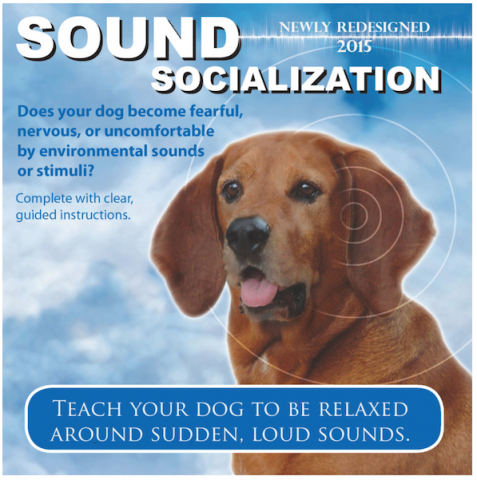
—
Many dogs and puppies are afraid of fireworks.
Please take this holiday seriously for your dog’s sake! Take steps to keep your dog safe during this most frightening holiday period of the 4th of July.
How can you tell if your dog has noise anxiety?
Look for body signals when loud sounds affect your dog’s behavior:
· Crouching, close to the ground
· Drooling
· Lip licking
· Panting
· Lips pulled back and down
· Wild eyes
· Tail down or between legs
· Ears back
· Hiding
· Trying to escape the sounds
It’s usually a combination of signals indicating fear in reaction to loud sudden noises.
This is important because you can identify your best friend is frightened. Understand at that point he will experience primal instincts engaging of fight, flight, or freeze. At this moment you may experience wanting to help your dog in the normal ways of gentle voice, touch and presence to guide your dog out of the fear into a calmer state. This does not work and may actually reinforce the behavior. You are most likely unable to connect with your dog, interrupt the behavior, and move into something more positive at this stage.
The solution is sound socialization training. It’s based on scientific study and is positive and deepens your relationship of trust. The best way to help your dog is through training him to be calm and respond to the loud noises instead of fearfully reacting. It is a process of creating a positive imprint to a startling sound. It’s another step of enhancing your dog’s confidence and a better quality of life. With proper training your dog will be relaxed, calm and confident and you can go out and enjoy the celebration.
If you haven’t gotten around to sound socializing your dog, here are some short-term tips on what you can do to keep your dog safe during this holiday:
· Someone be home with your dog indoors.
· Turn on the TV or radio and act normally in a relaxed state. Your dog will look to you for direction.
· A tired dog is an easier dog. Exercise thoroughly early in the day.
· Use a leash when going outdoors and ensure ID tag is current and on your dog.
· Click here for a more inclusive list of printable tips to keep your dog safe during the 4th of July fireworks celebrations.
Did you know July 5th is the busiest day of the year for animal shelters because pets panic at all the loud, sudden noises and run away in fear to get away, ending up lost and scared or injured and alone or worse. (Source: American Humane Society)
Just like people, dogs respond better when calm and confident. Properly trained, your dog can be calm, relaxed and confident when loud sounds happen.
Providing sound socialization training to help your best friend be calmer, less anxious, and less fearful to everyday life sounds is one of the best gifts you can give your dog and your family. Veterinarians recommend this scientific approach to address the problem of noise anxious dogs and to establish healthy responses to loud noises. It’s a step-by-step process that works.
Training for each stage of a dog’s life is critically important. From puppies with the litter, puppy new to furever home, adult dog with unknown sound fears, and dogs with significant sound phobias, each has a specific method to scientifically and lovingly take your dog through the process to be able to change reactive to responsive. This makes a huge difference in quality of life for a dog.
Prevention
Puppies learn quickly during their positive imprint stages! A week or two of training and they accept loud sudden noises as part normal life. Since unexpected loud noises are indeed part of today’s world, puppies are set up for success when these happen.
Modification
Mature dogs can take a little longer if they have sound sensitivity and may need to achieve “actual life volume” on certain sounds in a month or two. It is highly recommended you test your dog to identify any curative training needed to help them have a more enjoyable life. The resulting more enjoyable life is for his family as well.
Deeper therapy
Dogs with known sound phobias take longer to overcome their fear and anxiety. Usually they have lived with noise fears over a period of time while the severity has manifested into stronger reactions. Training will take a period of time to compassionately help counter-condition and desensitize to specific sounds. It is usually not as long as the problem has existed and you will progress at your dog’s speed for effective long-term results.
Best Results
After initial training is complete, dogs benefit from recurrent training. Include sound socializing with your regular obedience and manners training to keep your dog responsive, calm and confident. It also has you working smoothly as a team and reinforces the loving relationship you share.
Take steps to keep your dog safe this holiday season and commit to sound training to treat the source and prevent escalating fear responses.
Please don’t let your dog become one of the statistics. Planning ahead is the best method by training your dog to be calm, relaxed and confident around the loud noises in our world.
Tips & socialization information provided by Angel Dog Inc, 780 Hendersonville Rd Suite 7 #5132, Asheville, NC, 28813.
Release ID: 363212

